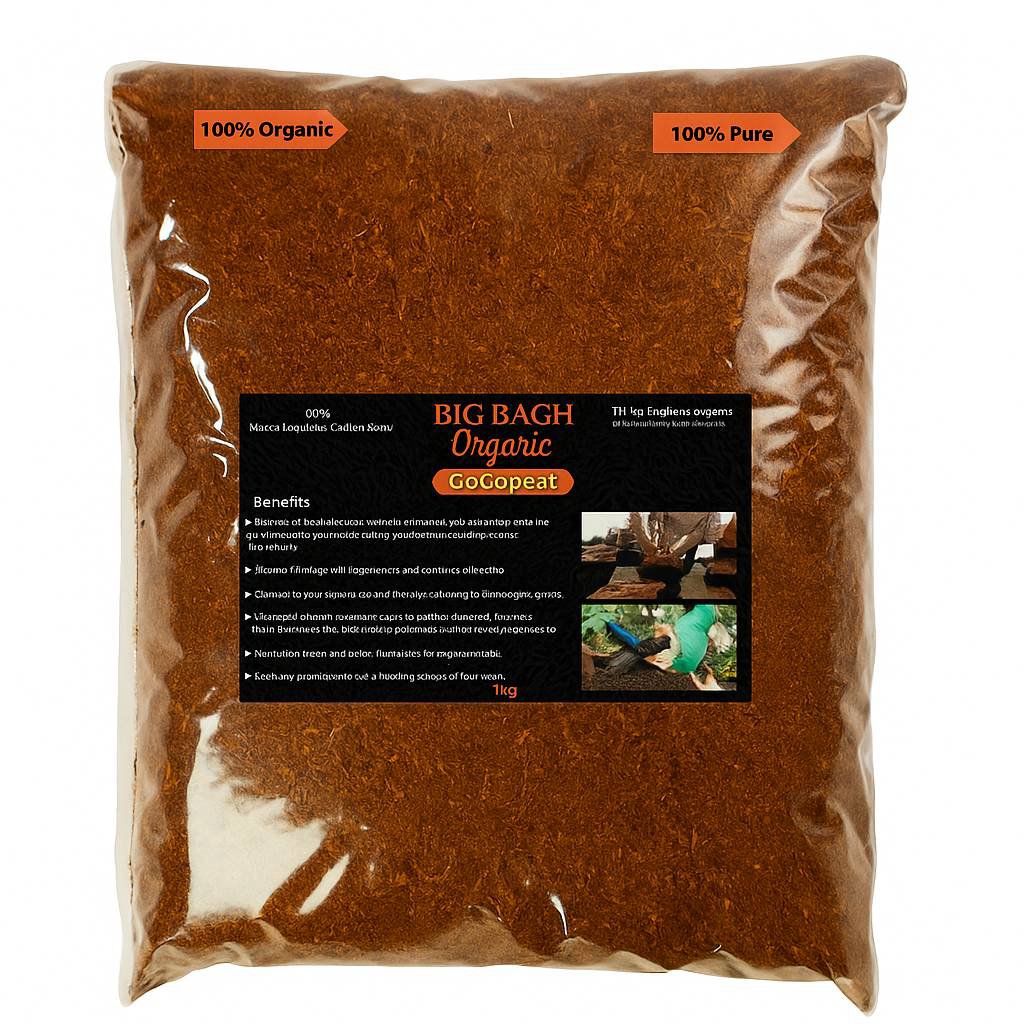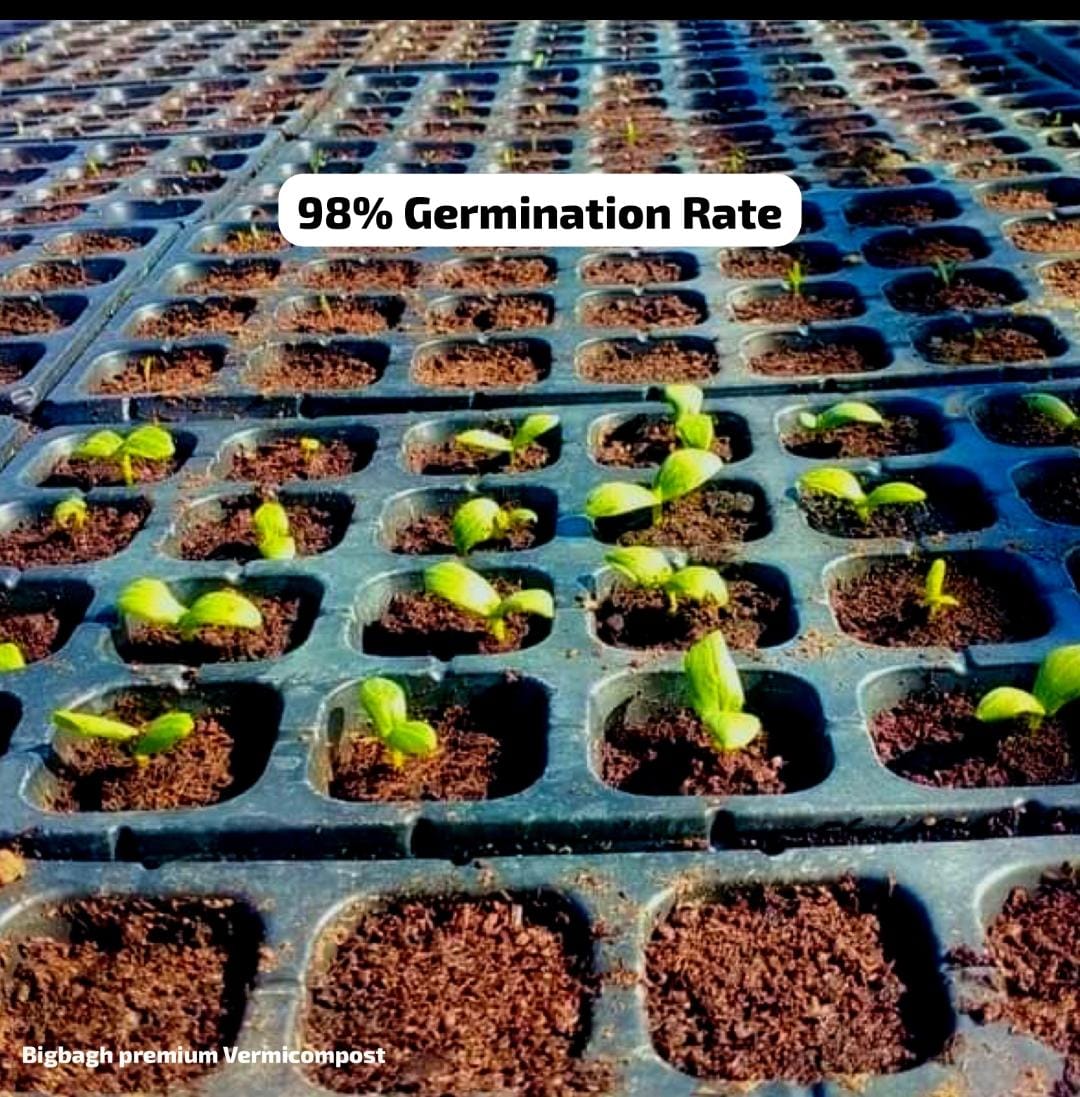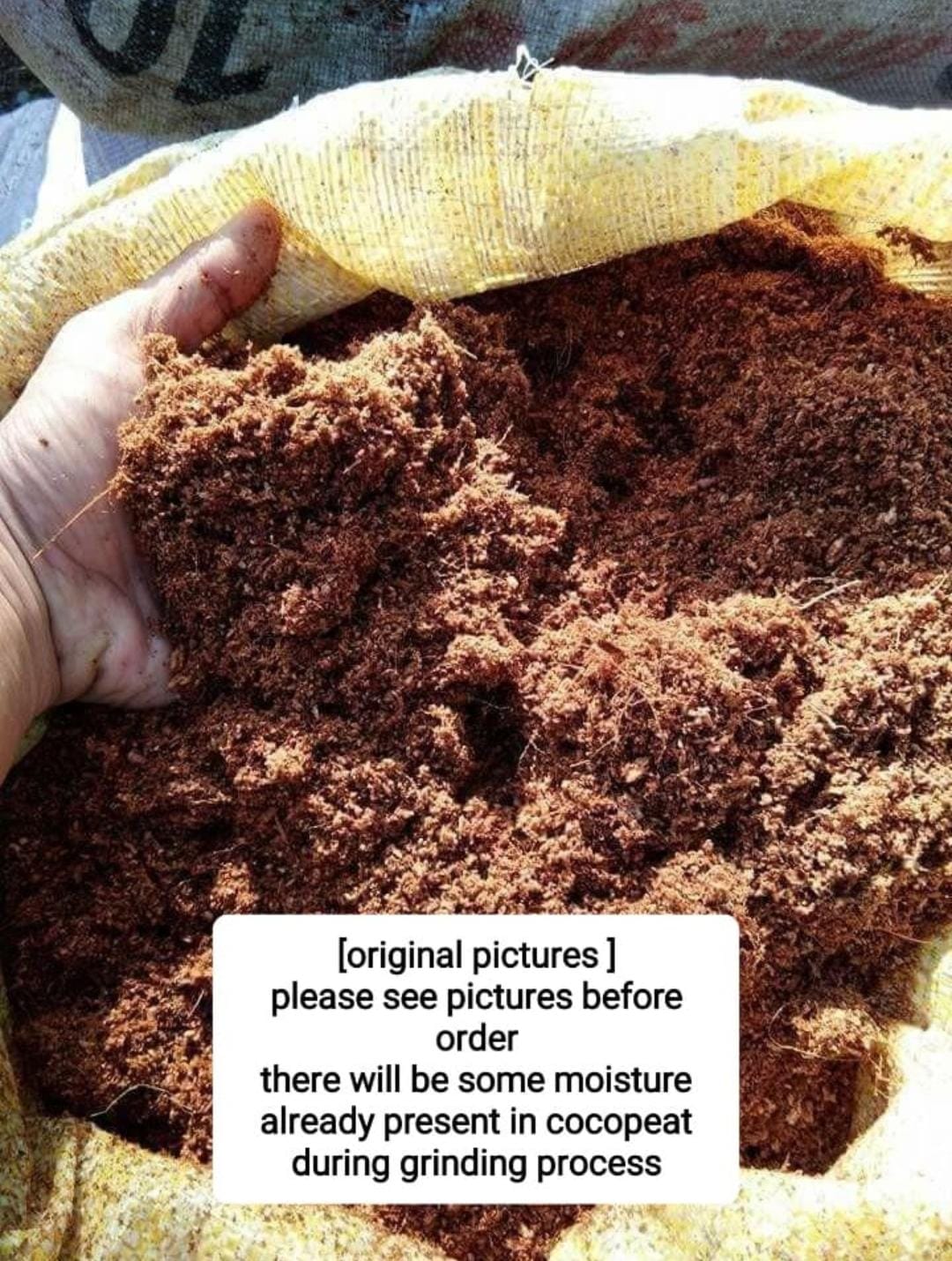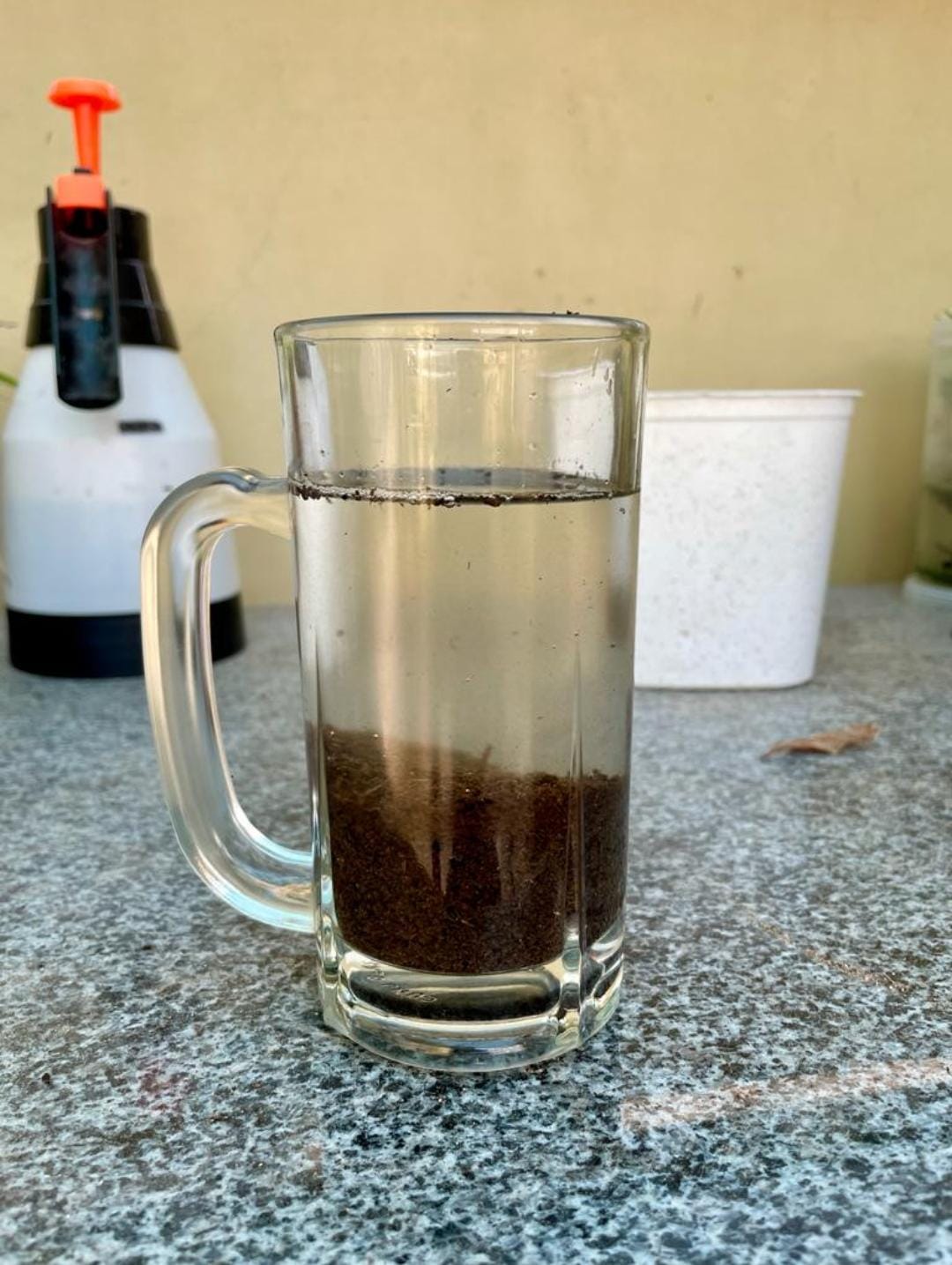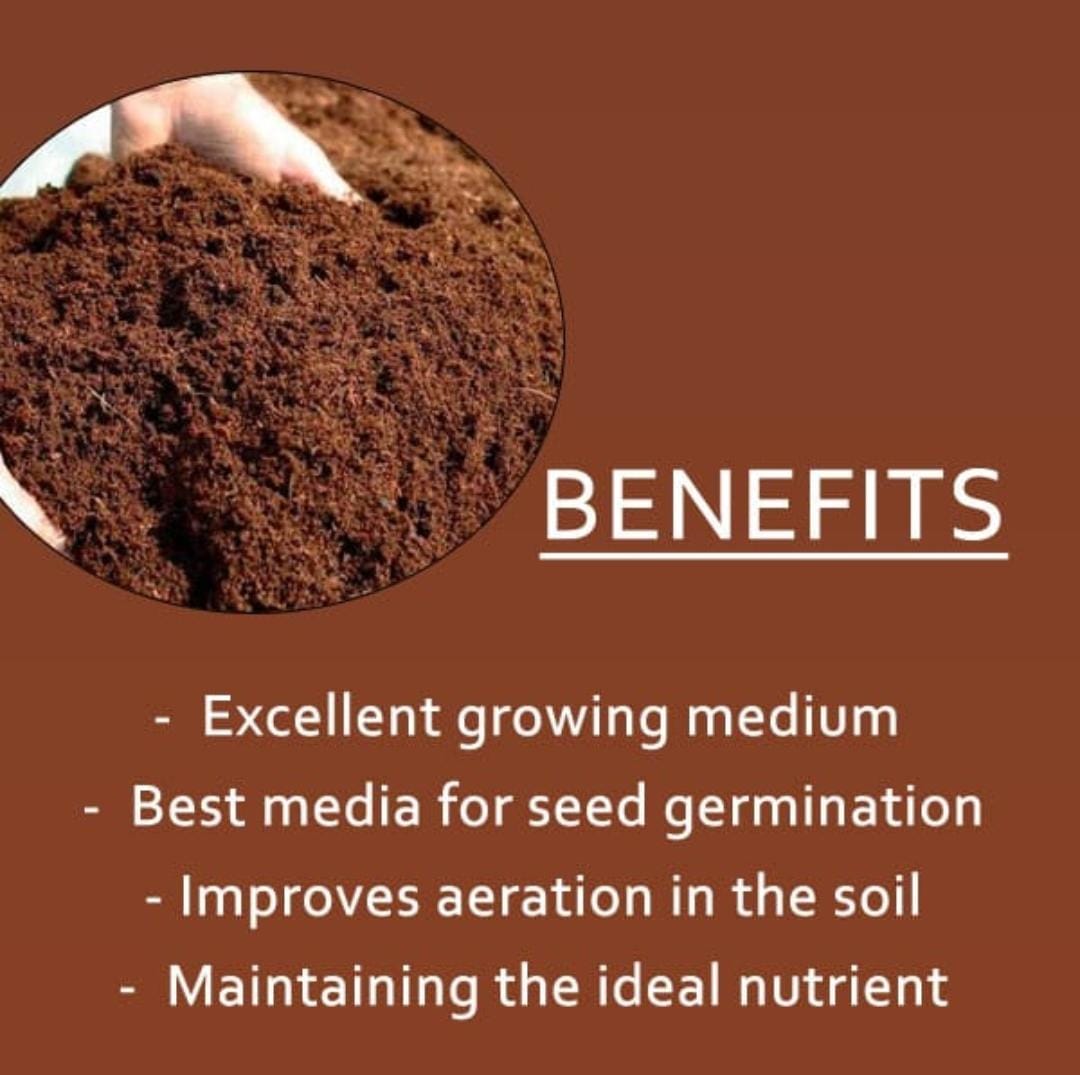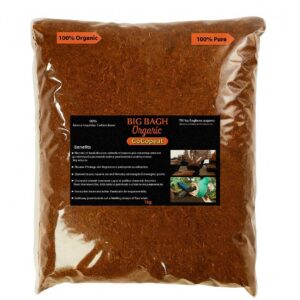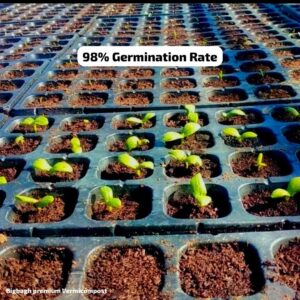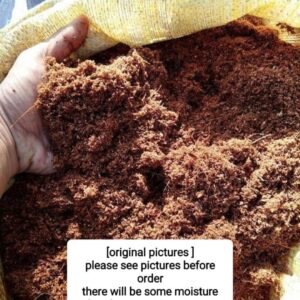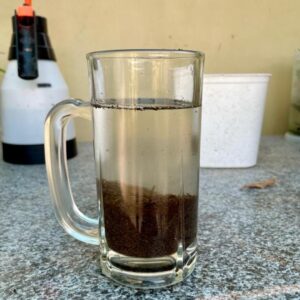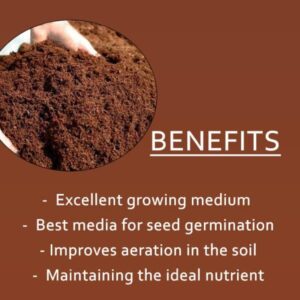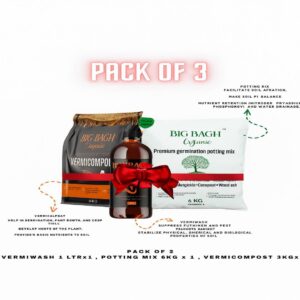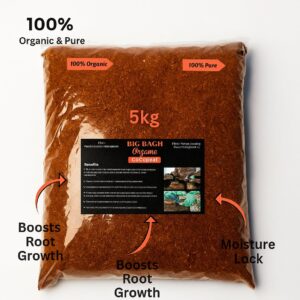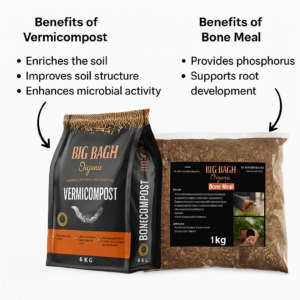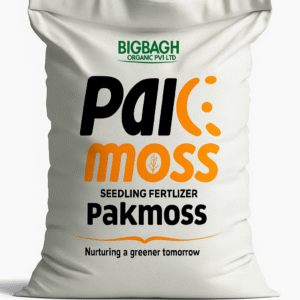BigBagh Cocopeat 1kg – Organic Soil Alternative for Indoor & Outdoor Plants”
₨ 1,000 Original price was: ₨ 1,000.₨ 250Current price is: ₨ 250.
BigBagh Cocopeat 1kg is a premium, ready-to-use soil alternative ideal for indoor and outdoor plants. It improves water retention, root health, and plant growth. Perfect for pots, kitchen gardens, and seed starting.
Cocopeat, also known as coir pith, is a natural, eco-friendly growing medium derived from the fibrous husk of coconuts. It is highly valued in horticulture for its excellent water retention, aeration, and drainage properties. Cocopeat is an ideal substitute for traditional soil and is often used in gardening, hydroponics, and as a base for potting mixes. It is lightweight, biodegradable, and has a high capacity to retain moisture, making it perfect for indoor and outdoor plants. Additionally, cocopeat is sustainable and renewable, as it is a by-product of the coconut industry
Benefits of cocopeat for plants
Cocopeat offers several benefits for plants, making it a popular choice among gardeners and horticulturists:
Excellent Water Retention: Cocopeat can hold moisture well, helping to maintain consistent soil moisture levels, which reduces the need for frequent watering.
Improved Aeration: Its fibrous texture allows for better airflow to plant roots, preventing root rot and promoting healthy root growth.
Enhanced Drainage: Cocopeat drains excess water efficiently, preventing waterlogging and ensuring that plants do not become overly saturated.
Sustainable and Eco-Friendly: It is a renewable resource and a natural by-product of coconuts, making it an environmentally friendly alternative to peat moss and other synthetic materials.
Neutral pH: Cocopeat typically has a neutral pH, making it suitable for a wide range of plants without altering soil acidity.
Nutrient Retention: It can hold and release essential nutrients like nitrogen, phosphorus, and potassium, aiding in better plant growth.
Lightweight and Easy to Handle: Cocopeat is lighter than soil, making it easier to work with and transport.
Long-Lasting: Unlike other organic materials, cocopeat breaks down slowly, providing long-term benefits to plants.
Reduces Soil Compaction: The use of cocopeat in soil mixes helps prevent soil compaction, promoting root expansion and overall plant health.
| Weight | 1 kg |
|---|---|
| Dimensions | 8 × 2 × 8 cm |

